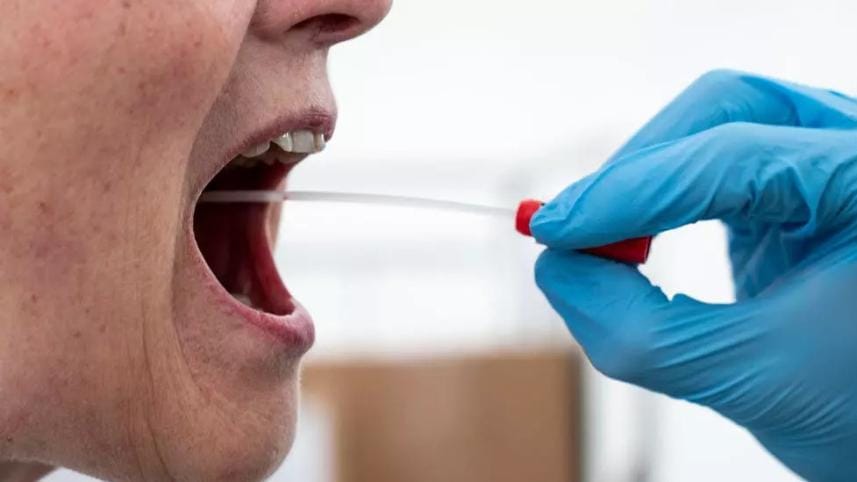Updates from a frontline healthcare worker in the UK

More than a week ago, the anaesthetic and critical care service manager Laura came to see me in theatre. She informed me that a new government guideline had been in place from the NHS England. She needed to do a risk assessment of me based on the ethnicity, age above 60 years and sex (male). After the formal risk assessment, the Trust had decided to withdraw me from the Intensive Care Unit (ICU) duties. The ICU was full of Covid patients and I was exposed to the risk of contracting the disease. The Trust gave me the option of either shielding myself at home or to work in a non-Covid hospital. I have opted to work in a non-Covid hospital 33 miles away from my home. The set up in that hospital is as follows: The hospital is asking the patients who are waiting for operation to stay at home for a week (self-isolation). If there are no symptoms of Covid then they perform a Covid test on the patient. If the test result comes negative, then patients are invited to come to hospital for operation. Despite all these measures and precautions, we treat patients as suspected Covid and use full Personal Protective Equipment (PPE) in the theatre. Last week I worked there anaesthetising trauma and cancer patients. I know a Bangladeshi male doctor with substantial health risk in my Trust is currently being shielded at home for two months.
There are more than 1,133 doctors with primary medical qualifications from Bangladesh who are currently working in the UK. In addition, there are hundreds of doctors, dentists, nurses and allied healthcare professionals of Bangladeshi origin working in the frontline and looking after Covid patients. My organisation, Bangladesh Medical Society in the UK has written a letter to the Secretary of State for Health, Rt Hon Mr Matt Hancock MP to protect and support the healthcare professionals of Bangladeshi origin working in the NHS.
I worked in the ICU for more than eight weeks looking after Covid patients. I have seen huge uncertainty and unpredictability, increased workload with limited workforce, limited resources including PPE and lots of unknown and unanswered questions. I have worked under severe stress, mental pressure, anxiety, fear for my own safety and safety of my family. I have seen some of my colleagues contracting the disease, going home for self-isolation and one my colleagues dying on a ventilator under my care. I have also seen lots of death from Covid-19 despite receiving the multi-organ support in the ICU. I would like to mention the long term effect of Covid on mental health of frontline healthcare workers. I hope the following few issues would be appropriate to discuss among the many:
Moral injury: The term moral injury is used in the literature with regards to mental health issues of military veterans. The moral injury is associated with a feeling of guilt, shame, anger, helplessness and disgust which leads to psychological distress. The concept of moral injury among healthcare professionals has evolved over the last 35 years.
Post-traumatic stress disorder (PTSD): This is a mental illness with a characteristic symptoms caused by frightening experience. Fear and anxiety are the main symptoms including nightmares, flashbacks, thoughts and exaggerated body response in an emergency situation. Affected persons are at a higher risk of committing suicide and self-harm. We have seen a doctor who has committed suicide few days after successfully looking after several Covid patients in a New York hospital.
Burn out: When a prolonged and excessive work-related stress produces a state of emotional, mental and physical exhaustion, it is termed as burn out. It manifests in the professional life as fatigue, frustration, negativity and inefficiency. Intensive care staffs are at higher risk of developing a burn out state.
We need a focused approach to identify and address the above mental health problems of frontline healthcare workers to avoid further deterioration. Psychiatric counselling, psychotherapy, debriefing sessions and workshops on stress management should be organised for the above vulnerable group of healthcare workers. Their valuable works needs to be acknowledged at national level through time off work, rewards, financial incentives and salary increments. All frontline healthcare workers who have died during the pandemic, their family should be remunerated substantially. All these exercises make the healthcare workers mentally strong, physically stout and a better healthy professional force to face any future health crisis.
Coronavirus infection is a global public health disaster. The virus has exposed the ugly face and serious weakness of public health service in Bangladesh. It is now important to admit that the public health service is poorly funded and not fit for purpose. We can't rule out the possibility of another new virus outbreak and pandemic in a few years' time.
I believe Covid-19 will be with us for a long time, until we find an effective vaccine against this virus or its treatment. There is no good evidence out there yet for a possible hard immunity against this virus. We will have to learn to live with Covid-19. The public health awareness, personal hygiene including hand hygiene, nutrition, boost self defence against the virus, regular exercise, regular sleep and social distancing could be the short time answer for now. Stay at home and be safe.
Md Salimuzzaman Bhuiyan is general secretary, Bangladesh Medical Society in the UK. Email: mszaman57@yahoo.co.uk



 For all latest news, follow The Daily Star's Google News channel.
For all latest news, follow The Daily Star's Google News channel.
Comments